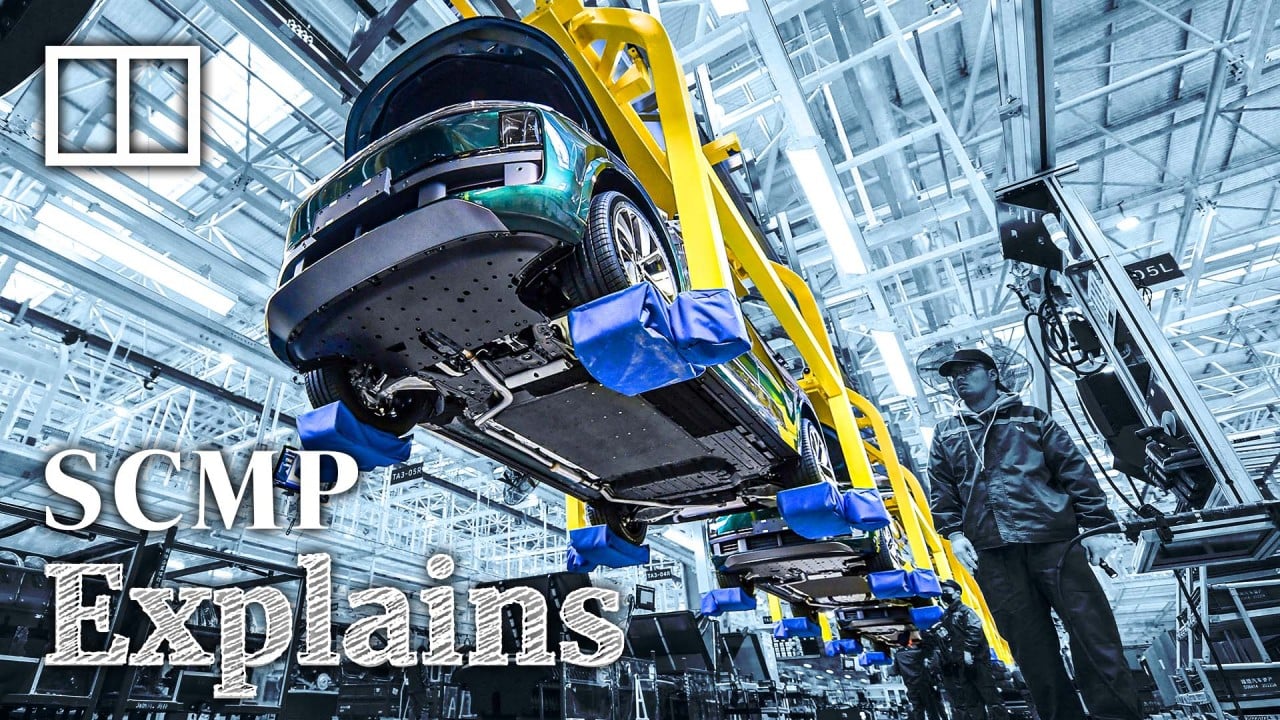It is understood that Chinese businesses affected have sought legal advice on the commission’s apparent decision to apply tariffs without communicating the rate four weeks before they take effect, as is customary in the EU.
It was previously expected that the rate would be disclosed on Wednesday, June 5. After July 4, the commission has four months to turn the provisional duties permanent, in consultation with member states.
“This is an ongoing investigation, we are not going to comment on it. We will be in a position to announce some provisional elements on it quite soon,” said Olof Gill, the EU’s trade spokesman.
The saga has infuriated Beijing, and dominated discourse on EU-China relations for months.
The probe was launched in October, with European Commission President Ursula von der Leyen warning of a “flood” of Chinese EV imports coming to Europe, which she said could decimate the continent’s automotive industry in the same way its solar sector was all but wiped out a decade earlier.
Since then, the ins and outs of the inquiry have been debated ad nauseam. Supporters want higher duties to deter Chinese imports, an argument that has united securocrats, who fear the data harvesting potential of EVs, and economic nationalists, who want to protect the EU’s industry.
Free-traders and environmentalists, on the other hand, have formed an unlikely alliance against duties, arguing that they would distort markets and derail the bloc’s efforts to wean itself off combustion engine cars and thus decarbonise.
Powerful elements in Germany too have emerged in opposition to the duties, with its own car companies also on the hook for higher costs in shipping their vehicles made in China back to Europe. German diplomats have been lobbying against the tariffs in Brussels, while Chancellor Olaf Scholz has publicly questioned the probe.
Now, Brussels faces a challenge in applying a countervailing duty that would balance out the level of subsidies they have found in the Chinese economy and level the playing field for domestic car companies, while also not appearing to abandon its commitment to the EU’s Green Deal.
A cottage industry of analysis has sprung up around the investigation, with experts scrambling to predict the level of duty that will be applied – but also attempting to forecast the response from Beijing, and gaming out the steps of what many expect will be a tit-for-tat trade war.
Regardless of the rate they land on, they are bound to upset some stakeholders. Some may gripe that if the rate is too low, it will incur a response from Beijing without restricting the flow of imports.
China has fumed not just at the prospect of duties, but at the very idea of the investigation.
A five-page letter mailed to the EU’s trade chief Valdis Dombrovskis threatened to go after EU aviation and food exports. Brussels sources said the letter contained no serious proposal for ending the feud, which could only be resolved on a technical basis, by addressing the underlying subsidies.
It was seen internally as a way of ginning up opposition to the probe among EU member states.
Before the letter was first reported by Politico, stories emerged that the commission would delay informing the exporters of the level of duty until after this week’s European Parliament elections. The suspicion is that Beijing could have hiked duties on sensitive agricultural products ahead of the polls, potentially skewing the vote.
It is this course of action that prompted Chinese businesses to seek legal advice.
“Instead of postponing the decision, the EU Commission should stop the probe ASAP. China stands ready to safeguard businesses’ lawful rights and interests,” the Chinese foreign ministry’s top Europe official Wang Lutong wrote on X in response to the delay.
Analysts at Rhodium Group have found that a tariff rate below 50 per cent would be unlikely to deter all Chinese EV imports and protect the EU’s industry, given that other markets have higher duties. The United States, for example, slapped a 100 per cent import tax on the cars last month – an effective ban.
The average historical countervailing duty applied by EU authorities is 19 per cent, while there is currently a 10 per cent import duty on the cars.
Research published last week by the Kiel Institute for the World Economy, a German research institute, showed that a 20 per cent tariff on Chinese EVs would result in a US$3.8 billion drop in EU EV imports from China, roughly 25 per cent of the current value of trade. Sales of domestically produced EVs would rise by US$3.3 billion, the study found.
“If the European side does not live up to its words and continues to suppress Chinese enterprises, China will take all necessary measures to firmly safeguard the legitimate interests of Chinese enterprises,” read a Chinese commerce ministry statement after Wang met with businesses in Spain on Sunday.
So far China has threatened, through official, media and business sources, to target EU pork, dairy produce, large engine cars, and aircraft, while also launching an anti-dumping probe into imports of EU-made brandy.
“Beijing is signalling its readiness to use highly visible tools to put pressure on member states that it hopes can influence the course of EU trade policy. The threats are aimed at France (agricultural and aerospace products) and Germany (cars), the two biggest EU member states,” read a note from Rhodium.
“France has been supportive of the commission, and Beijing is sending a signal to Paris that there will be a price to pay for this support. Germany has voiced doubts about the EV probe, and by threatening Berlin, Beijing likely hopes to encourage Chancellor Olaf Scholz’s government to push back more forcefully,” it read.


